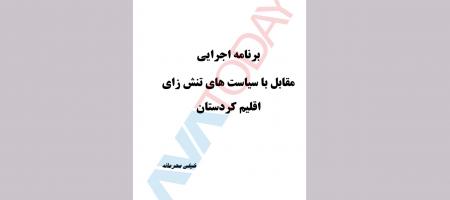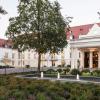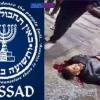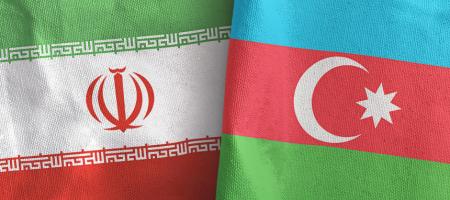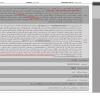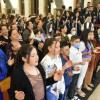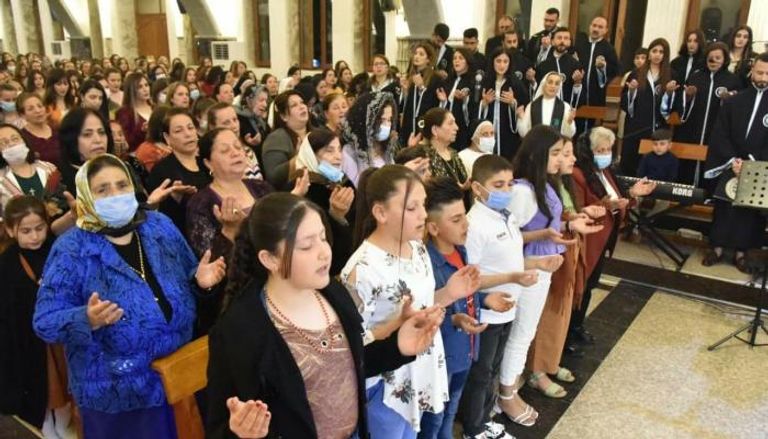
By: Shahram Mirzaei
Tens of thousands of Christians have been forced to flee their homeland to Kurdistan and Europe since 2014, when the Islamic State of Iraq and the Levant (ISIL) launched attacks on Christian areas in Iraq. Because of this, thousands of Christians have taken refuge in the Kurdistan Region to find a safe place to continue their religious lives under the rule of the Kurdistan Regional Government and to protect their children. According to the latest statistics, ISIL destroyed 83 Christian churches, shrines, and cemeteries in Iraq, but the places under the control of the Peshmerga remained safe and ISIL could not control these areas.
Christians in Kurdistan and Iraq are celebrating the Holy Week and Easter Day while their homes and lives are protected from terrorists under the shadow of the Kurdistan flag and the tireless efforts of the Peshmerga forces.
Easter marks the most important event in the calendar of believers in Jesus Christ. According to Christian belief, three days after his crucifixion, Christ rose from the dead, remained among his disciples for forty days, and then ascended to heaven.
This is the main foundation of faith in the Christian world, and according to the elders of the Christian world, without this part of faith any attempt to draw closer to Jesus Christ and God would be meaningless. In other words, without believing in the resurrection of Jesus Christ from the dead, being a Christian has no meaning. Therefore, this day and the days related to this event are very important for believers in Jesus Christ.
In this regard, Mr. Mariwan, an elder of a church in the Ankawa township of Erbil, explains the importance of Easter: “This holiday is one of the most important holidays in Christianity which we call "The Great Feast.”’
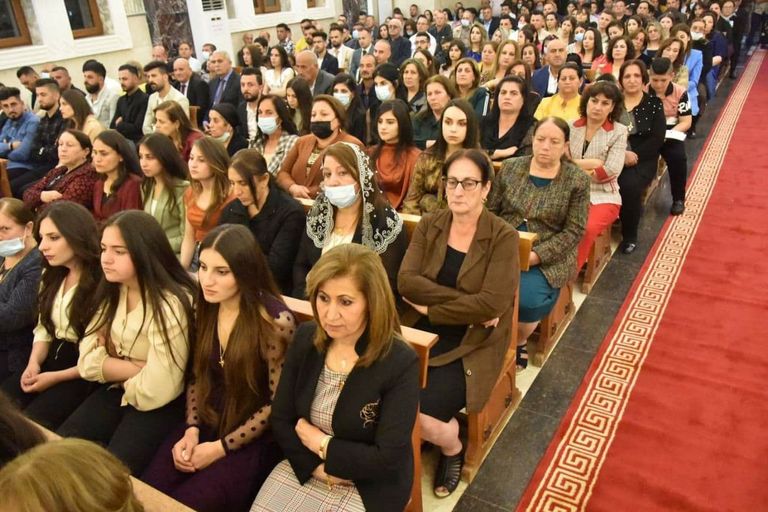
He said: "The importance of this holiday stems from the principles of the Christian faith that believers in Jesus Christ will not remain in the grave, but will have a glorified body like the body of Christ after the resurrection. Hence the significance of this great event for Christians. For this reason, this day, which commemorates the resurrection of Jesus Christ from the dead, is very important for Christians and is celebrated all over the world. The Bible says in this regard: 'For he raised us from the dead along with Christ and seated us with him in the heavenly realms because we are united with Christ Jesus.' (Ephesians 2:6). Corinthians chapter 15 deals in detail with the resurrection of Jesus and believers in Him. The holiday to remember the resurrection of Jesus Christ is very important for Christians and one of the main principles of faith in Jesus Christ."
However, there have been two interpretations of the date of the Resurrection. One relates to the early days of believers in Jesus Christ, most of whom were Jews and lived in Jewish society. In this reading, the day of Christ's resurrection coincided with the Passover, a great and important festival of the Jewish people. Even before Jesus was arrested by Roman soldiers and crucified, he commanded his disciples to prepare the Passover meal, known as the "Last Supper".
However, in the second reading, which dates back to the period after the conversion of the Roman Empire to Jesus Christ, Easter is separated from the Jewish background and, according to a new guideline drafted in 325 AD, was separated from the Passover ceremony. According to this guideline, Easter is the first Sunday of the full moon that follows the spring equinox, which alternates between March 22 and April 25. This year, Easter falls on April 9 and all churches around the world will celebrate the occasion.
Regarding the customs and traditions of believers in Kurdistan on this day, Mr. Mariwan says: “The ceremony of Easter is celebrated in the way it was celebrated during the time of the disciples of Jesus Christ. According to this custom, when a believer meets other believers, he tells them, "Christ is risen," and his friend replies, "Yes, it is right, he is risen". This custom was common not only in the early churches but before them, during the time of Christ's disciples."
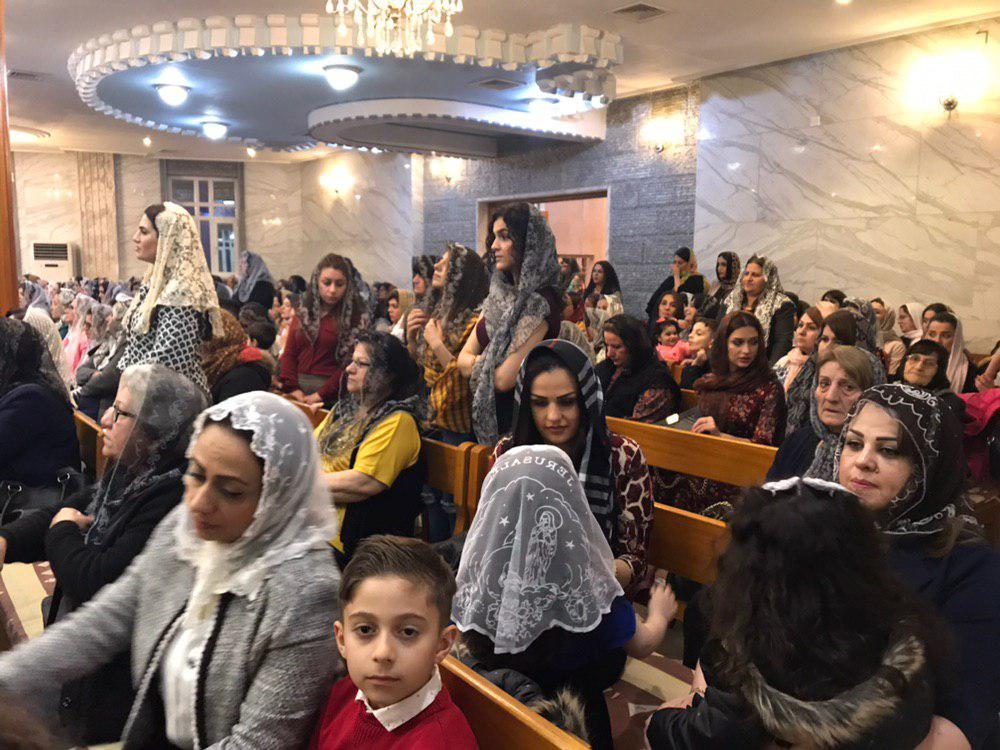
he continued: "Another custom observed these days is egg dyeing. After boiling the egg, believers decorate it and draw pictures on it, symbolizing rebirth, happiness and coloring life.
Christians also visit each other and celebrate this great occasion, and on Sunday mornings attend the feast service in church to praise and glorify Jesus Christ who rose from the dead. On this holy day, believers sing songs and hymns to Jesus Christ in churches to thank Him for sacrificing His life for them, risied from the dead, and overcoming death. Then, in all churches, priests will deliver special sermons on this important event.”
Also pastor Joe, the priest of the Erbil Baptist Church, responded to the question of how believers in Kurdistan celebrate Easter: “For Easter, many churches meet together. Men, women, and children all come together. We first gather together on Friday, which we call Good Friday. Good Friday is the day that Jesus died on the cross. The reason we call the day Jesus died as "Good" Friday is because Jesus willingly gave his life as a sacrifice to make all people who repent and believe in him clean from their sin. This is the good news of the gospel of Jesus.”
He added: “In that gathering on Friday, we read parts of the Gospel that describe Jesus's death on the cross and why he had to die. Then on Sunday, the church gathers again to remember the day that Jesus rose from the grave. In that gathering, we read parts of the Gospel that describe how Jesus came back to life. We sing songs together that praise Jesus for conquering sin and death through his death and resurrection. We pray together, asking Jesus to save more sinners from their wrong way. A pastor preaches from the Bible to remind us of the hope we have in Jesus and to call us to live obedient lives to God. After the meeting, we all have a meal together to enjoy fellowship with one another.”
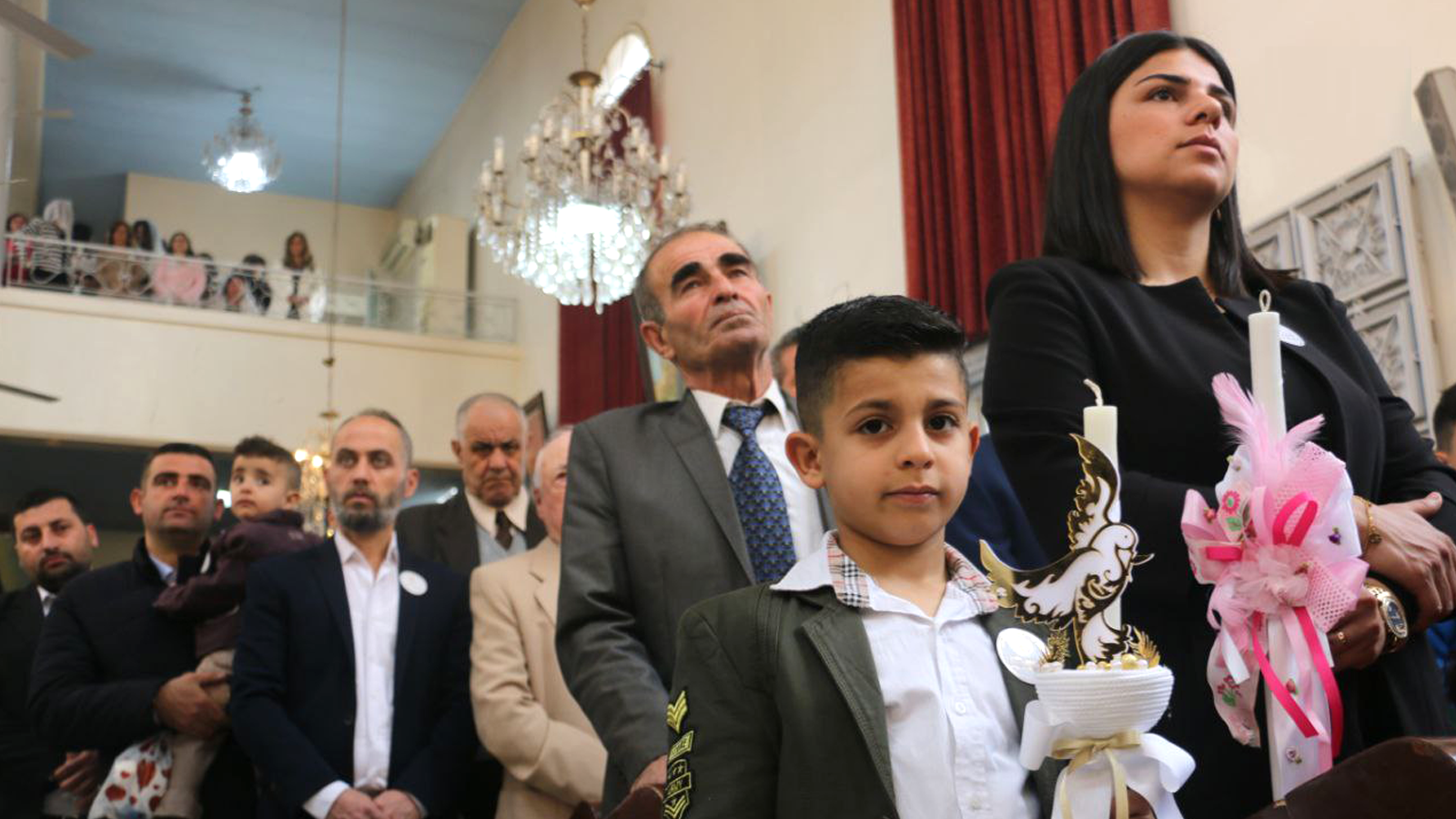
After the fall of Saddam Hussein's regime, Kurdistan was strengthened and the Kurdistan Region’s economy was developed. Kurdistan Region then became a safe place for believers in Jesus Christ of any language and nationality, especially after the Islamic group (ISIL) took power. Under the shadow of a people’s national and democratic government, Kurdistan, which has always been a country of coexistence and peace, has been able to create the best conditions for security and peace for the communities of Kurdistan in the 21st century. The Kurdistan Region has become a significant example for the Middle East and the world in maintaining security and peace between communities and ensuring their rights.
In this regard, Mr. Mariwan, one of the elders of the Kurdistan churches, says: “I must say that since the formation of the Kurdistan Regional Government, a full and worthy effort has been made to preserve the diversity of society and coexistence.”
“Therefore, you can clearly see that the Kurdistan Regional Government has approved Easter along with other holidays and provided three days of official holidays for believers in Jesus Christ, so that Kurdish believers can celebrate this holy day with a peaceful mind. Simultaneously with religious ceremonies, the Kurdistan Regional Government (KRG) will deploy security forces in all Christian areas to protect the security of believers during the holidays, and security forces will be deployed around church buildings to ensure that believers conduct their ceremonies safely and securely.” Mariwan noted.
He added: “I must also point out the undeniable fact that all Iraq and all countries in the world that do not respect Christians properly must look at the experience of coexistence and the history of protecting the rights of Christians in Kurdistan. They must make the Kurdistan Region their model in the field of protecting minority rights and coexistence.”

